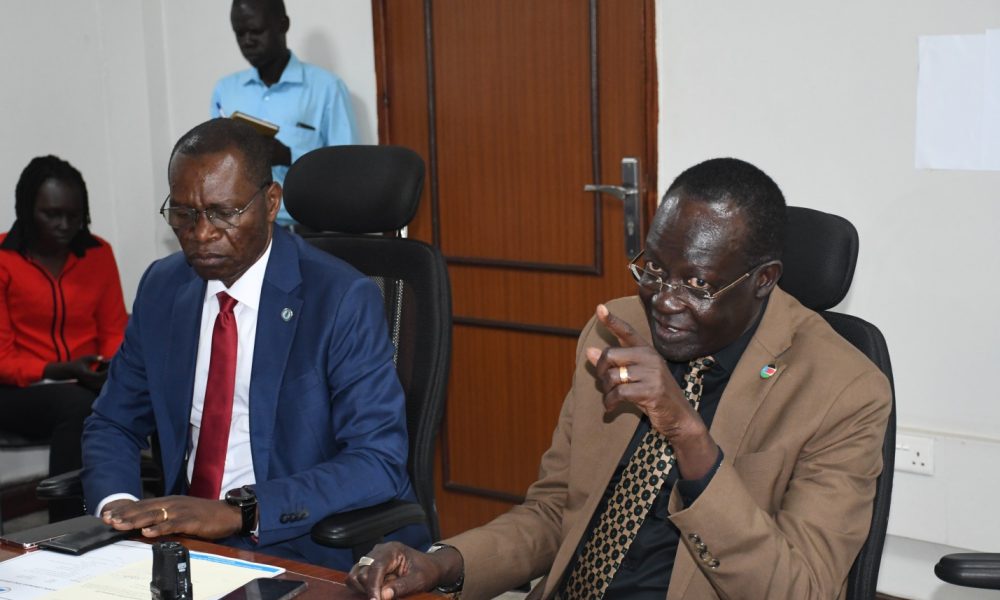By William Madouk
South Sudan government has initiated Labour Regulations, a subsidiary law that will govern the employer-employee relationship and address loopholes in the Labour Act.
The Minister of Labour, James Hoth Mai, yesterday signed the Regulations.
Speaking during the signing ceremony, Mai said the labour regulations were to address gaps in the 2017 Labour Act.
“We started developing these regulations last year to translate the Labour Act, 2017. In the Act, we have some loopholes that were not covered, so we make these regulations out of the Act and fill the gap where the law was silent in some areas,” he said.
He stressed that “Through this act, we will also make guidelines for the implementation of this regulation itself, but we drive this regulation from the Labour Act.”
While the Minister of Public Service and Human Resource Development, Bangasi Joseph Bakosoro, said a lack of rules and regulations to guide employer and worker relations hampered the sector for a long time.
He urged the Ministry of Labour to embark on a public awareness campaign to make people aware of the importance of the regulation.
“Somebody tells me that South Sudan has all the best laws in the country, the best books, and everything else, but our problem is that we bypass them—we just ignore them and use our own way,” he added.
Mr. Bakosoro decried the low budget share that is not remitted fully, thwarting the operation.
He also urged the information minister to allow state-owned radio to give free airtime for government officials to do sensitization.
The chairperson of the committee on Labour in the national parliament, Anne Lino Wuor Abyei, congratulated the Ministry of Labour, adding that a challenging task now is implementation.
She said that the majority of workers do not know their rights and obligations, including when and where to follow up on their labour rights.
“Many of us don’t know our rights. So, this is why we talk about the importance of having a strong labour office, a labour court, and employers educated, and telling them not to exploit the employees,” said Anne.
MP Anne lamented about employers who overwork employees as well as called for the protection of the same job with different wages where locals are paid low, usually by foreigners.
“A minimum of 8 hours; after that, there are overtime and other benefits. There is car-washing company in Juba; people work even on holidays and Sundays and get only their salaries,” she narrated.
“Our people do the same work in hotels with the same hours, and the foreigners are paid more. All this needed protection, which is why I say laws are very important,” she added.
Meanwhile, the undersecretary in the Ministry of Labour, Mary Hillary, said they started drafting the labour regulation in 2022 with support from the NGOs Forum, which hired a consultant.
She revealed that the labour regulation underwent thorough consultation with stakeholders, including the Ministry of Justice and Constitutional Affairs.
“The regulation is very important for the nation, all stakeholders, employees, and workers, and it is the law that regulates working relations,” said Ms. Hillary.
According to her, the labour docket would now embark on nationwide consultations to make people aware of their rights.




